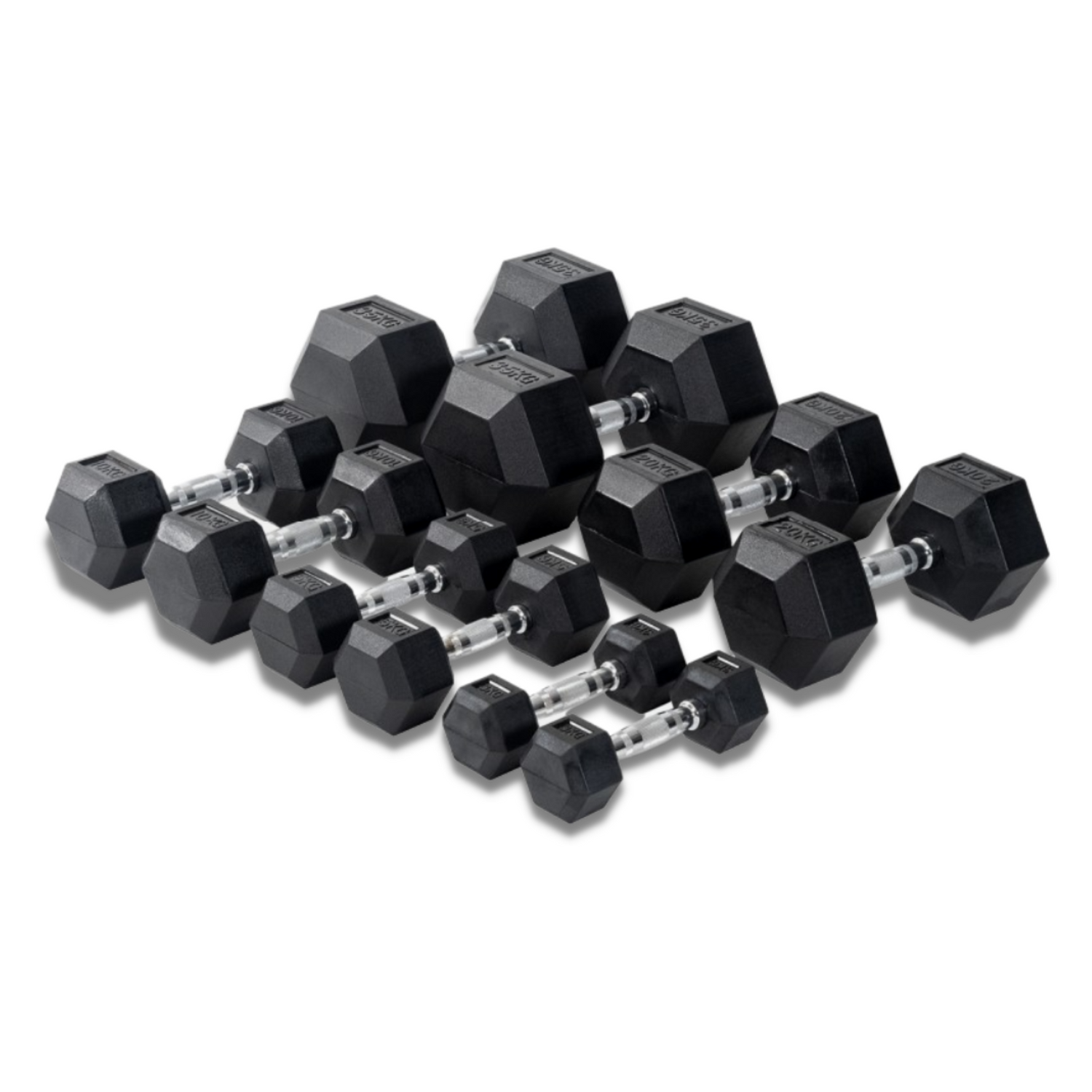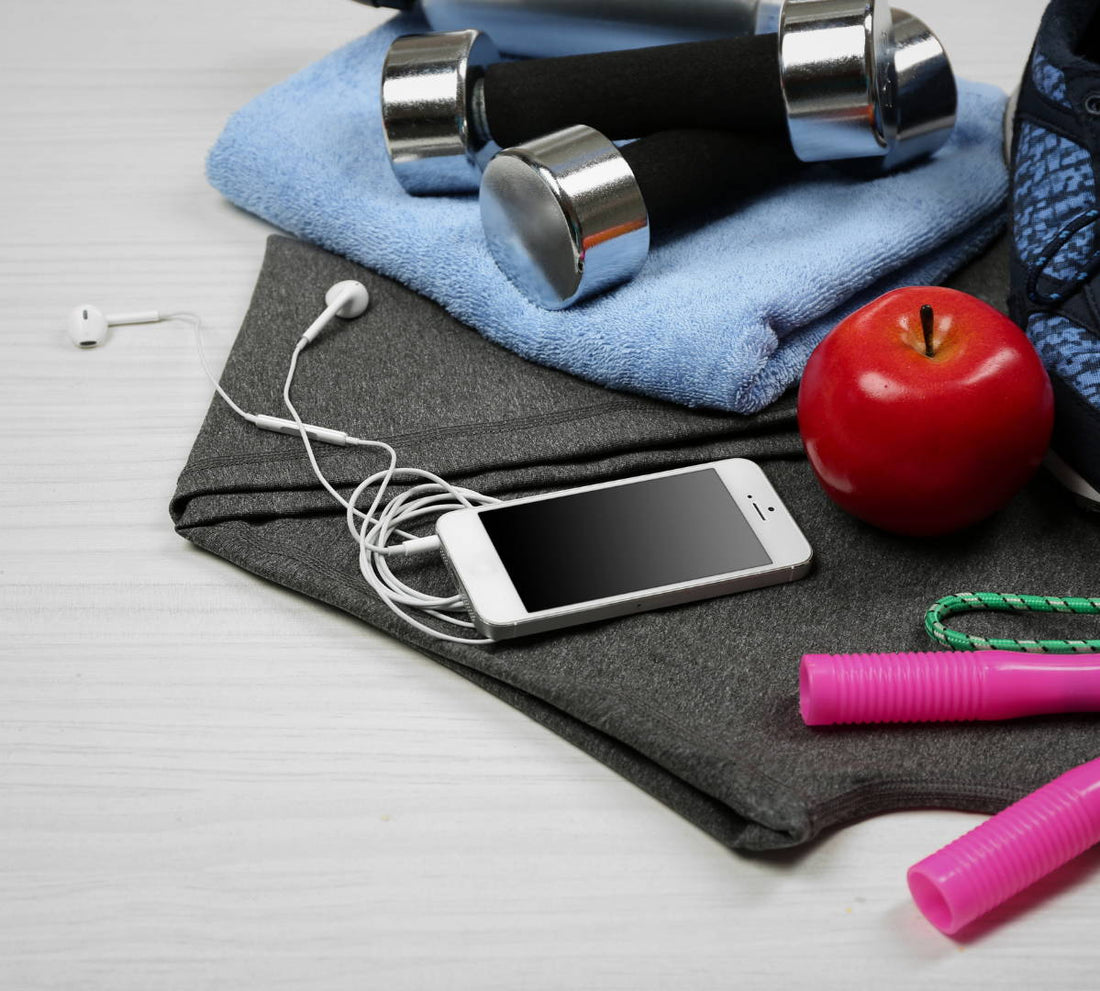Kick start your new habits here!
How to Turn New Year's Resolutions Into Lifelong Habits
Posted by Gym Direct, 3rd January 2025
From Resolutions to Results: How to Build Habits That Last a Lifetime
Let’s face it—setting New Year’s resolutions is the easy part. Sticking to them? That’s a whole other ball game. You start with a burst of enthusiasm, imagining your fitter, stronger, healthier self. But then life gets busy, motivation fades, and your well-intentioned goals are quietly left behind. Sound familiar?
Here’s the truth: Resolutions fail when they rely solely on motivation.
Why? Because motivation is fleeting—it comes and goes like a fickle friend. What you really need is discipline, consistency, and a system that works for you. Building lifelong habits isn’t about striving for perfection or sprinting toward a finish line; it’s about taking steady, intentional steps toward your goals every single day.
In this guide, we’ll explore practical strategies to help you turn your New Year’s resolutions into habits that stick. From setting realistic goals to embracing discipline over motivation, you’ll learn how to craft routines that fit seamlessly into your life. Ready to make a change that lasts? Let’s dive in.
Why Most Resolutions Fail
The All-or-Nothing Trap
One of the biggest reasons New Year’s resolutions fail is the "all-or-nothing" mindset. You skip one workout, and suddenly, you feel like a failure. "Why bother continuing?" you think. But here’s the thing—missing one day doesn’t ruin your progress. Giving up entirely does.
Life isn’t black and white, and neither is fitness. Allow yourself room to make mistakes. Progress isn’t about being perfect; it’s about showing up more often than not.
Unrealistic Expectations
Setting overly ambitious goals can be just as damaging. Wanting to go from zero to hero overnight is tempting, but it’s a surefire way to burn out. If you haven’t exercised in months, aiming to work out six days a week is setting yourself up for failure. Instead, start with achievable goals that build your confidence. Remember, small steps lead to big results.
Laying the Foundation for Lifelong Habits
Start Small, Dream Big
Think of your fitness journey as climbing a mountain. You don’t leap to the summit in one go—you take it step by step. Instead of aiming for a massive overhaul, commit to small, manageable changes. Can you fit in a 10-minute walk today? Great! Build on that over time.
These small victories create momentum and make your New Year’s resolutions feel achievable. And as your confidence grows, so does your capacity to take on bigger challenges.
The Power of “Why”
Motivation fades, but purpose sticks. To create habits that last, dig deep into why you want to achieve your resolutions. Is it to feel more energetic and keep up with your kids? To prevent future health issues? To boost your confidence? Whatever your reason, write it down and keep it visible. On tough days, your “why” will remind you why you started in the first place.
"Motivation is what gets you started. Habit is what keeps you going."
Building Sustainable Fitness Routines
Consistency Over Perfection
Forget perfection—it’s overrated and unrealistic. Consistency is the real game-changer. It’s not about hitting a home run every time you step into the gym; it’s about showing up, even when you don’t feel like it.
If you can’t manage your full workout, do half. If you can’t hit the gym, go for a quick walk instead. Progress isn’t about doing it all—it’s about doing something. Over time, these small acts of consistency add up to big changes.
Make It Convenient
The easier you make it to stick to your routine, the more likely you are to succeed. Hate driving to the gym? Create a home gym setup with basic equipment like dumbbells or resistance bands. Prefer group settings? Join a fitness class near your workplace or home. Convenience eliminates excuses, making it simpler to stay on track with your New Year’s resolutions.
Hacks to Keep Motivation High
Discipline Over Motivation
Motivation gets you started, but discipline keeps you going. Discipline is like a muscle—the more you use it, the stronger it becomes. Set a schedule and treat your workouts like non-negotiable appointments. You don’t rely on motivation to brush your teeth or go to work, so why should fitness be any different?
Track Your Progress
Nothing feels better than seeing how far you’ve come. Use a fitness tracker, keep a journal, or snap weekly progress photos. Progress isn’t just about numbers on a scale—it’s about feeling stronger, having more energy, and building confidence.
Reward Yourself
Celebrating your wins, no matter how small, is key to staying motivated. Hit a milestone? Treat yourself to new workout gear, a massage, or a cheat meal. Positive reinforcement makes the process feel rewarding and keeps you excited for the next goal.
Adapting to Life’s Curveballs
Embrace Flexibility
Life happens—unexpected work deadlines, family obligations, or just plain exhaustion. Instead of beating yourself up for missing a workout, adapt. Can’t make it to the gym? Do a quick at-home session. Too tired for cardio? Stretch or meditate instead. Being flexible ensures you stay on track, even when life throws you a curveball.
Create Backup Plans
Always have a plan B. Keep a list of quick, equipment-free workouts for busy days or rainy weather. This way, you can stay consistent no matter what’s happening in your life.
Turning Fitness Into a Lifestyle
Focus on Enjoyment
If you hate running, don’t force yourself to do it! Find activities that you genuinely enjoy, whether it’s dancing, swimming, hiking, or kickboxing. When exercise feels fun, it stops being a chore and starts being something you look forward to.
Incorporate Fitness Into Everyday Life
Fitness doesn’t have to happen in a gym. Walk instead of driving, take the stairs, or do bodyweight exercises during TV commercials. These little changes make fitness feel like a natural part of your day.
The Power of Reflection and Adjustment
Regularly Evaluate Your Goals
Are your goals still aligned with your lifestyle and priorities? If not, adjust them. Maybe you started with weight loss as your goal but now want to focus on strength or endurance. Fitness is a journey, and it’s okay for your goals to evolve.
Celebrate Long-Term Wins
New Year’s resolutions often focus on short-term results, but don’t forget to celebrate the long-term benefits of sticking to your habits. Better health, increased energy, and improved mental well-being are worth celebrating!
Stay Inspired, Stay Committed
Learn From Others
Seek out stories of people who’ve turned their New Year’s resolutions into lifelong habits. Success leaves clues, and learning from others can inspire your own journey.
Visualise Your Success
Picture yourself living the life you’re working toward. Visualisation isn’t just motivational fluff—it’s a powerful tool used by athletes and high achievers to stay focused and committed.
Habits Are the Real Goal
New Year’s resolutions are just the spark; habits are the fire that keeps burning. By focusing on discipline, consistency, and small daily actions, you can create a routine that sticks. Remember, it’s not about perfection—it’s about showing up, doing the work, and staying committed to the process. Progress takes time, but with patience and persistence, you’ll get there.
So, why not start today? Your future self will thank you.
FAQs
How long does it take to build a habit?
Research suggests it takes 21 to 66 days for a habit to stick, but consistency matters more than the exact timeline.
Why do New Year’s resolutions fail so often?
Most resolutions fail because they rely on motivation alone and set unrealistic expectations. Discipline and achievable goals are key.
Can I build habits even with a busy schedule?
Absolutely! Small actions, like 10-minute workouts or walking during lunch breaks, can make a big difference over time.
How do I stay consistent when life gets chaotic?
Have backup plans, embrace flexibility, and remind yourself that something is always better than nothing.
What if I miss a day or fall off track?
Missing a day is normal—it doesn’t mean you’ve failed. Reflect, adjust, and pick up where you left off. Progress, not perfection, is the goal.
Disclaimer: The information provided in this article is for general guidance and informational purposes only. It should not be considered a substitute for professional advice or consultation. Always consult with a qualified fitness trainer or healthcare provider before starting any new exercise regimen or making significant changes to your fitness routine, especially if you have any underlying medical conditions or health concerns. The authors and publishers of this article do not assume any responsibility for the accuracy or completeness of the content and shall not be held liable for any direct, indirect, or consequential damages arising from the use of information contained herein. You are solely responsible for your health and fitness decisions, and any actions you take based on the information presented in this article are at your own risk.
Shop our Range
SUBSCRIBE TO OUR NEWSLETTER
Recieve our latest weekly releases, offers, guides and more.



